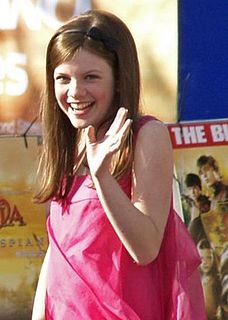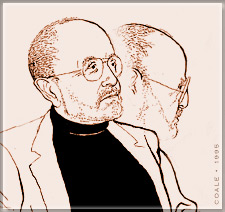A Quote by Chitra Banerjee Divakaruni
I've long been interested in the tale-within-a-tale phenomenon. I'm familiar with many tales which use this framework or the device of many people in one place, telling their stories, or multiple storytellers commenting on each others' stories with their own.
Related Quotes
What do you know about yourself? What are your stories? The ones you tell yourself, and the ones told by others. All of us begin somewhere. Though I suppose the truth is that we begin more than once; we begin many times. Over and over, we start our own tales, compose our own stories, whether our lives are short or long. Until at last all our beginnings come down to just one end, and the tale of who we are is done.
My real purpose in telling middle-school students stories was to practice telling stories. And I practiced on the greatest model of storytelling we've got, which is "The Iliad" and "The Odyssey." I told those stories many, many times. And the way I would justify it to the head teacher if he came in or to any parents who complained was, look, I'm telling these great stories because they're part of our cultural heritage. I did believe that.
Nothing ever begins. There is no first moment; no single word or place from which this or any story springs. The threads can always be traced back to some earlier tale, and the tales that preceded that; though as the narrator's voice recedes the connections will seem to grow more tenuous, for each age will want the tale told as if it were of its own making.
Stories are thick with meanings. You can fall in love with a story for what you think it says, but you can't know for certain where it will lead your listeners. If you're telling a tale to teach children to be generous, they may fix instead on the part where your hero hides in an olive jar, then spend the whole next day fighting about who gets to try it first. People take what they need from the stories they hear. The tale is often wiser than the teller.
While many alternate reality stories ask, 'What might have been?' parallel universe stories literalize the war between good and evil that plays inside each of us every day. It's what makes this type of story so perfect for many fantasy tales: we're all just a coin flip away from being entirely different people.
Fairy tales are loved by the child not because the imagery he finds in them conforms to what goes on within him, but because--despite all the angry, anxious thoughts in his mind to which the fairy tale gives body and specific content--these stories always result in a happy outcome, which the child cannot imagine on his own.
As an activist, you do find yourself directed more toward public action. But I've always tried to use stories from my own life in my writing for instance. It has always been clear to me that the stories of each other's lives are our best textbooks. Every social justice movement that I know of has come out of people sitting in small groups, telling their life stories, and discovering that other people have shared similar experiences. So, if we've shared many experiences, then it probably has something to do with power or politics, and if we unify and act together, then we can make a change.
I loved [fairy stories] so, and my mother weighed down by grief had given up telling me them. At Nohant I found Mmes. d'Ardony's and Perrault's tales in old editions which became my chief joy for five or six years ... I've never read them since, but I could tell each tale straight through, and I don't think anything in all one's intellecutal life can be compared to these delights of imagination.
It has been said, "History is written by the victors." I take this to mean we can make ourselves victorious by writing, and then rewriting our own stories. In a country and culture so dominated by media, by the manipulation of words and stories, telling the tales of people whose stories historically have not been told is a radical act and I believe an act that can change the world and help rewrite history.

































